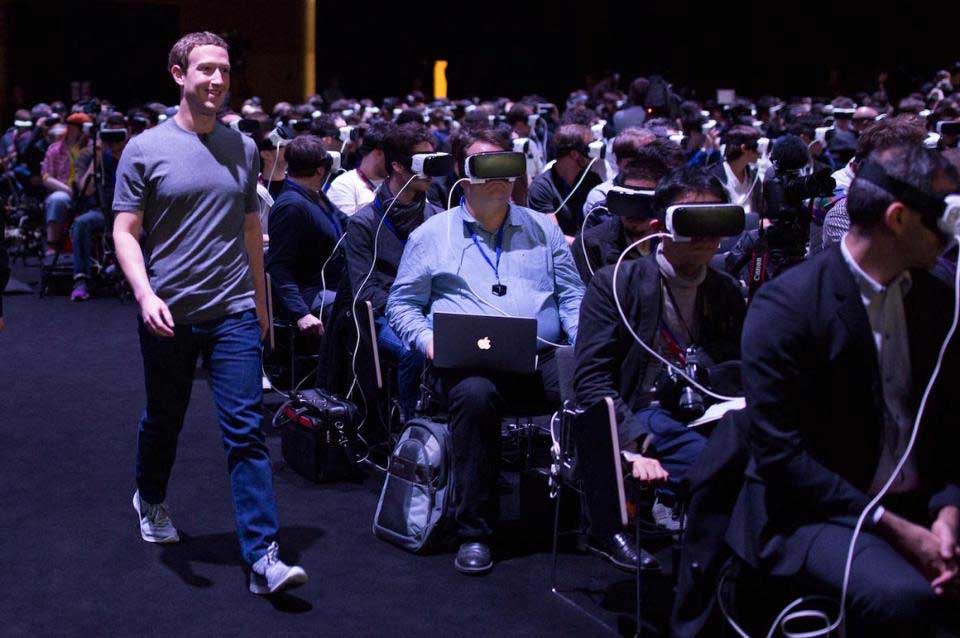In this section we'll look at Convention, Trade Show, Expo, Conference, and Exhibition Management, including: what it is; definitions, descriptions, and the differences between each one, how to become a meeting and convention planner, exhibition manager, trade show planner, or conference organizer, job descriptions, career advice, employment information, and the pros and cons of being an event planner in this sector of the events industry.
What is Convention/Trade Show/Expo/Exhibition & Conference Management? What are the definitions and differences between each of these?
Why become a conference organizer, convention planner, exhibition manager, or trade show planner? Career advice and employment information.
What does a conference organizer do? Read a real conference planner job description by Bill Jones, Vice President and Managing Director of Events, The Channel Company (formerly UBM Tech Channel).

Pros and cons of conference organizing by Bill Jones, Vice President and Managing Director of Events, The Channel Company(formerly UBM Tech Channel).

What does a convention planner/exhibition manager do? Read a real convention/trade show/exhibition management job description by Grace Nacchia, Event Director, George P. Johnson.

Pros and cons of convention/trade show/exhibition management by Grace Nacchia, Event Director, George P. Johnson.

This sub-sector of the events industry sits under the umbrella of corporate event / meeting planning and represents the remaining elements of the acronym M.I.C.E (Meetings, Incentives, Conferences, Exhibitions). See the previous sections, Meetings / M.I.C.E and Incentive Travel & DMC's for more information on the other sub-sectors.
In general terms, conferences, conventions (also known as exhibitions/expos) and trade shows are large events where like-minded people, often from a particular industry or group, get together to share information, learn, and network.
Conventions (aka exhibitions/expos) typically feature manned stands/booths in a large convention center/exhibition hall where organizations, products, and services are promoted and/or demonstrated.
Conventions may also include a program of other events, such as lectures, conferences, workshops, and seminars.
Alternatively, an event might be a ‘stand-alone’ conference without any form of exhibition. These types of conferences are sometimes informally referred to as ‘commercial conferences’ in order to differentiate them from corporate meetings and conferences, which come under the umbrella of corporate event planning.
Whereas corporate meetings and conferences are generally aimed at an invited audience, are free to attend or heavily subsidized by the hosting company, and are held for the purpose of marketing and communications, commercial conferences are marketed towards a specific industry or community, who generally pay to attend, and they are typically for-profit events held to make money.

Typically, a convention/exhibition/expo is initially defined by whether it is a ‘trade’ or ‘consumer’ event—although some do combine a mix of both, often programmed on separate days.
A trade show is a business-to-business (B2B) event where both those exhibiting, and those attending, are from a particular industry. The purpose is to market products and services from one business to another. These are generally not open to members of the public.
An example of this would be the Licensing Expo held in Las Vegas where brand owners, such as Mattel for Barbie, Disney for Star Wars, or EA Games for Medal of Honor, showcase their brands to potential licensees, such as retailers, wholesalers/distributors, and manufacturers, who might wish to lease a trademarked entity (a name, logo, likeness, character etc) and use it in conjunction with another product.
For example, a lunchbox manufacturer might form a license agreement with Disney so they can reproduce the Star Wars logo and Darth Vader image on a range of branded lunchboxes.
A consumer show, also known as a fair or festival, is when the exhibitors are businesses who want to market their products and services to attendees, who are members of the public. In most cases, the attendees pay an entry fee to attend these events. These types of events are held across different industries, resulting in shows such as The Great Bridal Expo, The Ideal Home Show, and the Miami International Boat Show. Consumer shows generally come under the umbrella of special event planning, which we'll look at in a later section.
In the case of conferences, the majority of ‘stand-alone’ ones are trade events aimed at a particular industry. However there are some types of conferences open to the public, usually academic or educational, which are sometimes referred to as ‘open conferences’. However, when conferences are held within another event, such as a convention, they are usually trade events.
Differentiating between a convention, trade show, exhibition, and conference can sometimes be difficult. Even within the events industry, the terms are often interchangeable. In addition, other names such as fair, festival, and expo are sometimes used.
Different names are sometimes used in different geographical locations, for example the United Kingdom generally doesn't use the term convention, instead referring to it as simply an exhibition. Often it’s just a matter of how the particular host company/organization chooses to position the event.
Let’s look at these individually to try to get a better understanding of each:
Conventions are large, usually recurring, events, where like-minded people get together to learn, promote, share information, and network.
They can be trade or consumer events, so might be for a particular industry, such as the National Automobile Dealers Association Convention, political parties, such as the Democratic National Convention, or hobbies and special interest groups, such as the Comic Con and Star Trek conventions.
Conventions usually consist of more than one type of offering, so the format might include presentations, a key note speech, lectures, seminars, conferences, discussions, meet and greets, panel debates, question & answer sessions, and social events.
Many will also include some form of exhibition / trade show where vendors and organizations present their products and services in manned booths, stands, and/or interactive display areas.
Due to their large-scale nature, with from several thousand to tens or even hundreds of thousands of attendees, these events are often hosted in dedicated convention centers or exhibition halls.
It’s not uncommon for conventions to ‘take over’ an entire city, where all the major hotels near to the convention center are block-booked to accommodate visitors who’ve flown in especially.
A trade show is a business-to-business (B2B) exhibition where companies showcase their products and services to the media and other companies in a particular industry, discover new market trends, and network.
Trade shows, also referred to as trade fairs or trade exhibitions, might be one of the offerings at a convention ie the ‘vendor floor’ element, or the term can also be applied to entire stand-alone events.
Consumer exhibitions, fairs, and shows are similar to trade shows in their format, however these are open to the public and exhibitors are looking to market their products and services directly to the consumer, who typically buy tickets to attend. These types of exhibitions and fairs are a type of special event, which we'll look at later.
Like trade shows, these can be ‘stand-alone’ events, such as Grand Designs Live, or part of a larger convention, for example Star Trek conventions will include a consumer exhibition where vendors will sell merchandise and collectables to the attendees.
Consumer shows often feature other offerings too, such as seminars, workshops, performances, catering, and other entertainment.
For example Britain & Ireland’s Next Top Model Live (the UK version of America’s Next Top Model) brings the show to life in the form of an exhibition with the latest fashion lines and beauty products. In addition to the shopping opportunities, there are live catwalk shows, makeovers, pampering sessions, advice from industry experts and celebrity appearances.
Expos (expositions) are large-scale exhibitions, often with an international reach. When most people think of expo’s they think of public ones, such as World Expos or World Fairs, which are held in different countries every five years.
However, the term expo is also used to describe large-scale international trade shows. An example of this would be the Licensing Expo held in Las Vegas, the world’s largest licensing industry event.
Sometimes an event will call itself an expo because it makes it sound grander, when it is really just a trade show—it’s just a branding decision the organizers have made to give more weight to how the event is perceived.
A congress is usually a much larger, often annual, meeting representing a particular profession or group.
These might consist of a conference, exhibition, seminars, summits, debates, and other activities. They usually last several days and attracts tens of thousands of attendees.
An example of this would be The GSM Association’s (GSMA) Mobile World Congress held in Barcelona, a trade event for mobile operators worldwide that attracts around 60,000 visitors.

Some conventions and exhibitions are referred to as festivals. Festivals usually consist of a program of different offerings held over several days or a week; which might include an exhibition, conference, seminars, workshops, master classes, presentations, screenings, awards ceremonies, gala dinners, receptions, and parties.
These festivals might be trade events or consumer. Examples of trade festivals would be MIPTV and MIPCOM in Cannes, aimed at the international TV and entertainment industries, or the Cannes Lions International Advertising Festival, the largest gathering of advertising professionals, designers, digital innovators and marketers. Examples of consumer festivals would be Food & Wine Classic held in Aspen, or The London Film Festival
As mentioned above, conferences can be just one offering at a larger event, such as a convention. Alternatively, they can be ‘stand-alone’ events aimed at a particular industry or community. These often consist of lectures and presentations, debates, panel discussions, networking breakfasts, lunches, evening receptions, leisure activities, and award ceremonies.
Conferences can be aimed at all different types of industries from pharmaceuticals and telecoms, to veterinary and travel. An example of a ‘stand-alone’ conference aimed at a particular industry would be the Black Hat technology conferences (held in USA, Europe and Asia) on information security, where industry leaders from companies such as IBM, Apple, Facebook, and Microsoft discuss topics such as malware, mobile, and defense.
Why become a conference organizer, convention planner, exhibition manager, or trade show planner? Career advice and employment information.